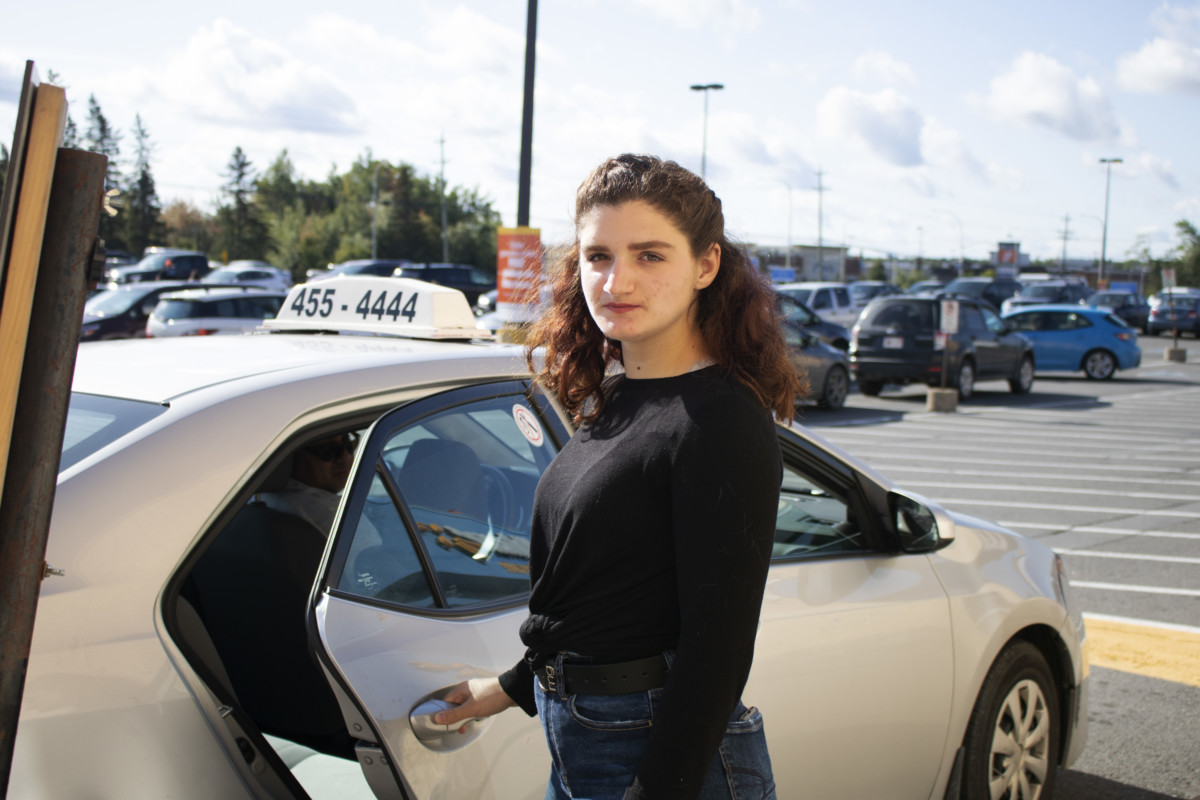During her first year at St. Thomas University, Olivia Ishimwe worked night shifts at a Sobeys on Fredericton’s northside. Ishimwe lived in Harrington at the time and said she had to call a cab to get home, which resulted in some uncomfortable experiences.
“I feel very unsafe,” the second-year psychology student said.
“I’ve had three [drivers] ask, ‘Oh, where are you from? You’re not from here.'”
Earlier in September, Judge Ann Marie Simmons found former Halifax cab driver, Bassam Al-Rawi, not guilty of sexually assaulting a female passenger in the back seat of his cab in May 2015. The acquittal sparked confusion and outrage across the Maritimes.
Ishimwe said these persistent questions make her feel like her privacy is invaded. She said a simple introduction when she gets into a cab would be enough to make her feel comfortable. She said having drivers ask where she’s from is too personal, and their interest can feel dangerous.
“The whole time, he was talking and I wasn’t responding,” Ishimwe said.
Gillian Little, a third-year STU student, said she takes a cab home every Sunday night and she’s never had an unsafe experience. Still, she said she sometimes feels uncomfortable and awkward when a driver tries to make conversation. Though, she blames it more on her social awkwardness than on them.
Little thinks companies should do their research when choosing cab drivers.
“I don’t think [companies] should be held accountable for the driver’s actions, but I do think they should be held accountable for ensuring that they aren’t sending out drivers who could potentially cause incidents,” she said.
Little said her most positive cab experience was with a female driver, which she believes are rare in Fredericton. She felt less at risk because of the driver’s friendly and polite attitude, as well as her gender.
According to the co-owner of Fredericton’s cab service Checker Cabs, Patrick Tahan, the company has 70 full-time and part-time staff. He said “five or six” are women. Tahan also stated the company addresses all complaints “very seriously” and would notify the city of said complaint.
Karla O’Regan, an associate professor of criminology at STU, said she will likely bring up the Al-Rawi case in her feminist legal studies class. She said the case raises interesting questions about rape culture.
She notes the size of Fredericton can make for limited options in terms of drivers.
“The difficulty, I think, in a city as small as Fredericton, is that there are times when there may only be two or three cars on the road, and you’re kind of stuck with whoever those drivers are,” O’Regan said.
O’Regan also specifies there isn’t enough data to support claims of increased risk of sexual violence in a cab. A Canadian Broadcasting Corporation article stated there are no national statistics for the number of allegations, but there are a number of allegations across the provinces.
She said she keeps safe by texting a friend the cab number, which is often displayed on the back of the driver’s seat, and to periodically check in with someone.
O’Regan said sexual violence is a public safety issue.
“They should be addressed as public safety concerns and not some feminist side issue.”

